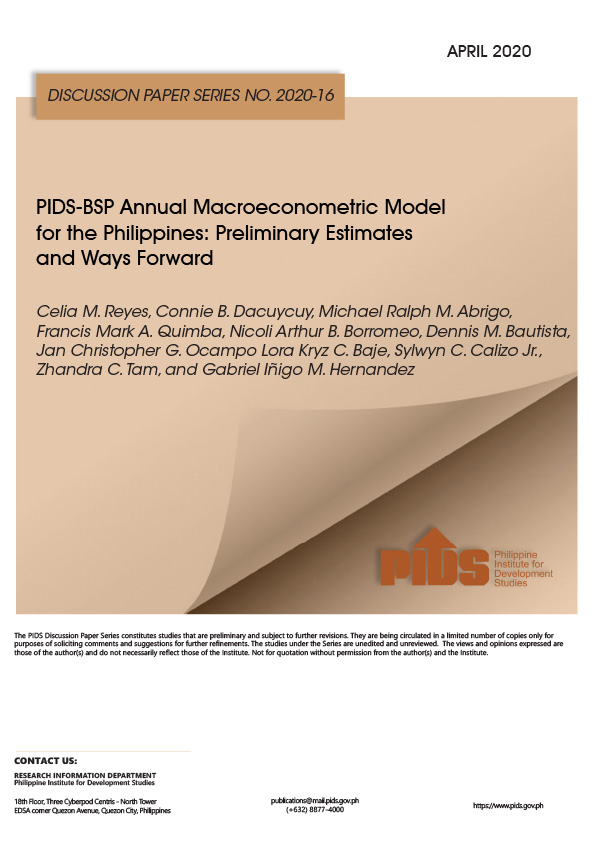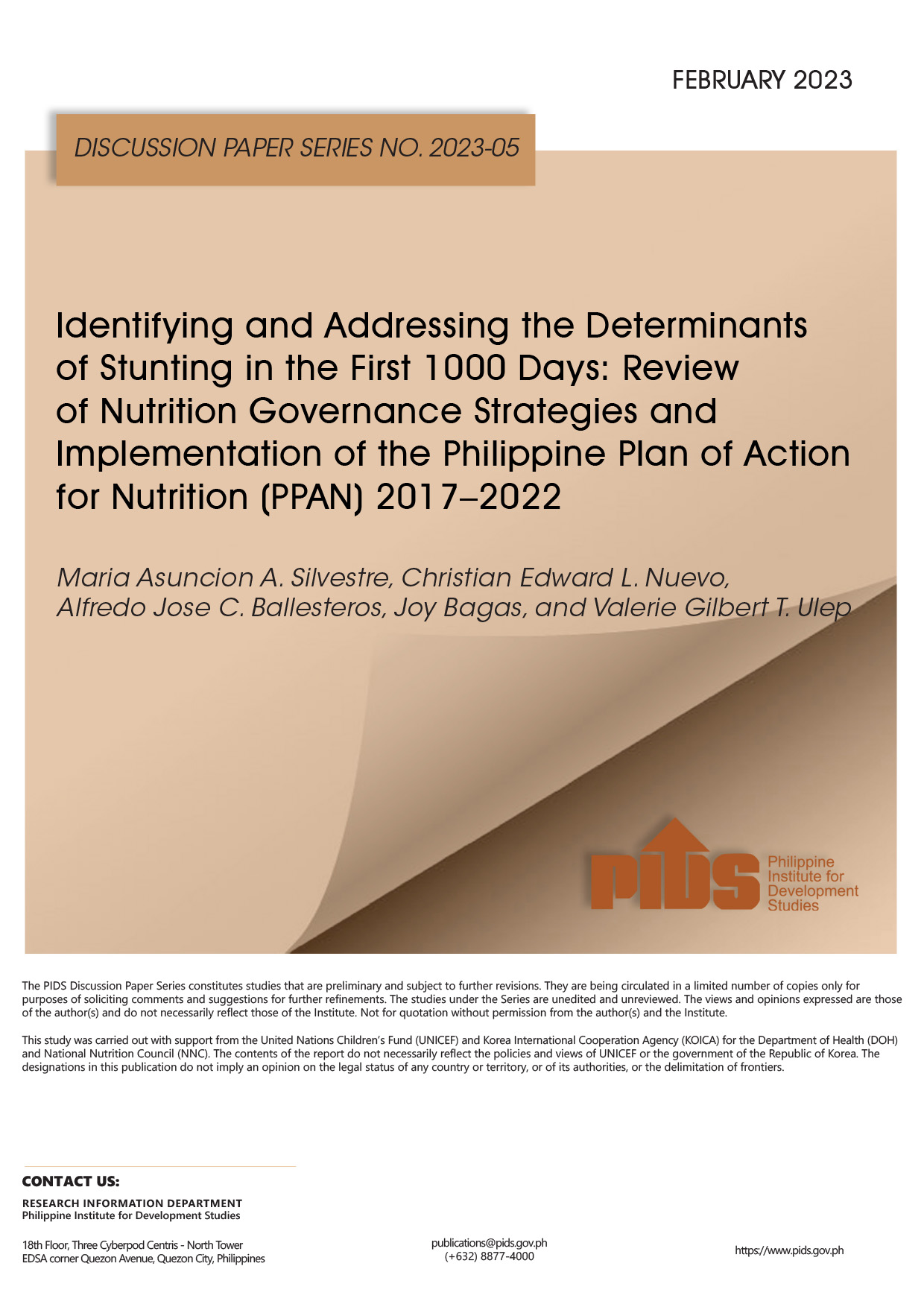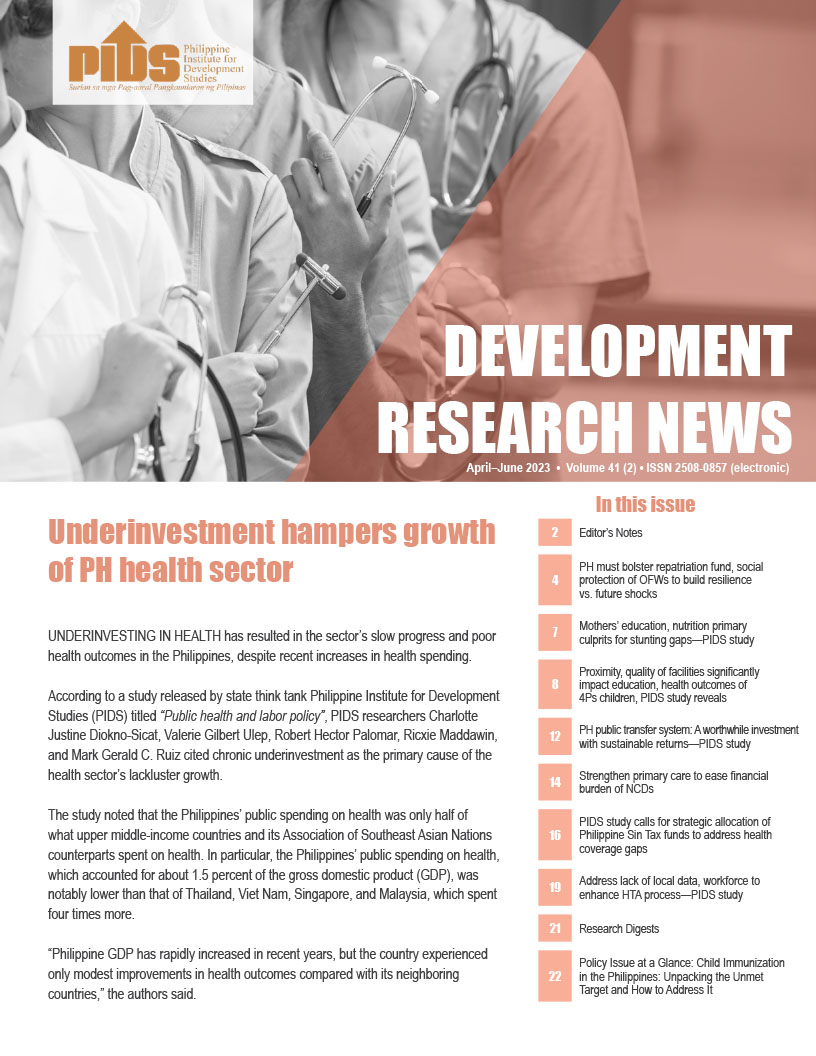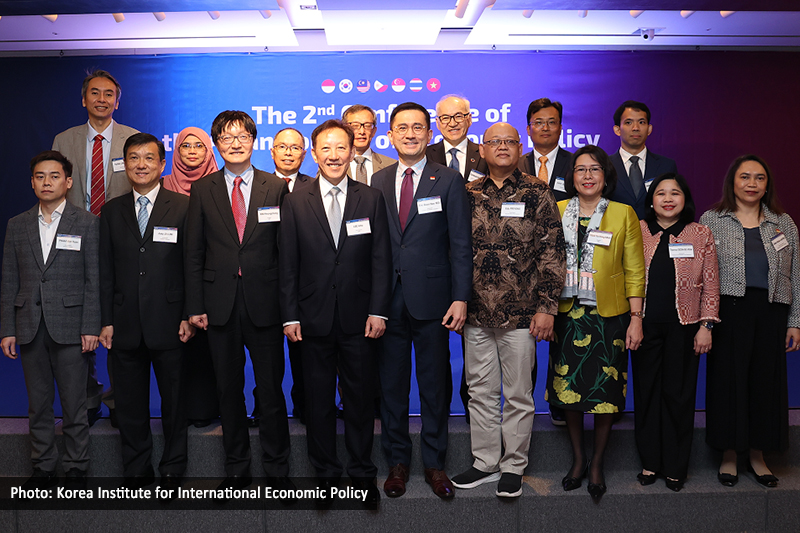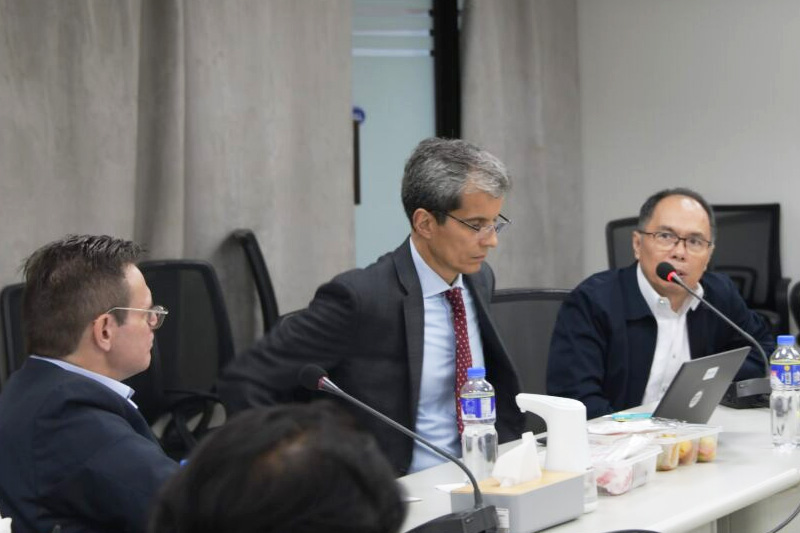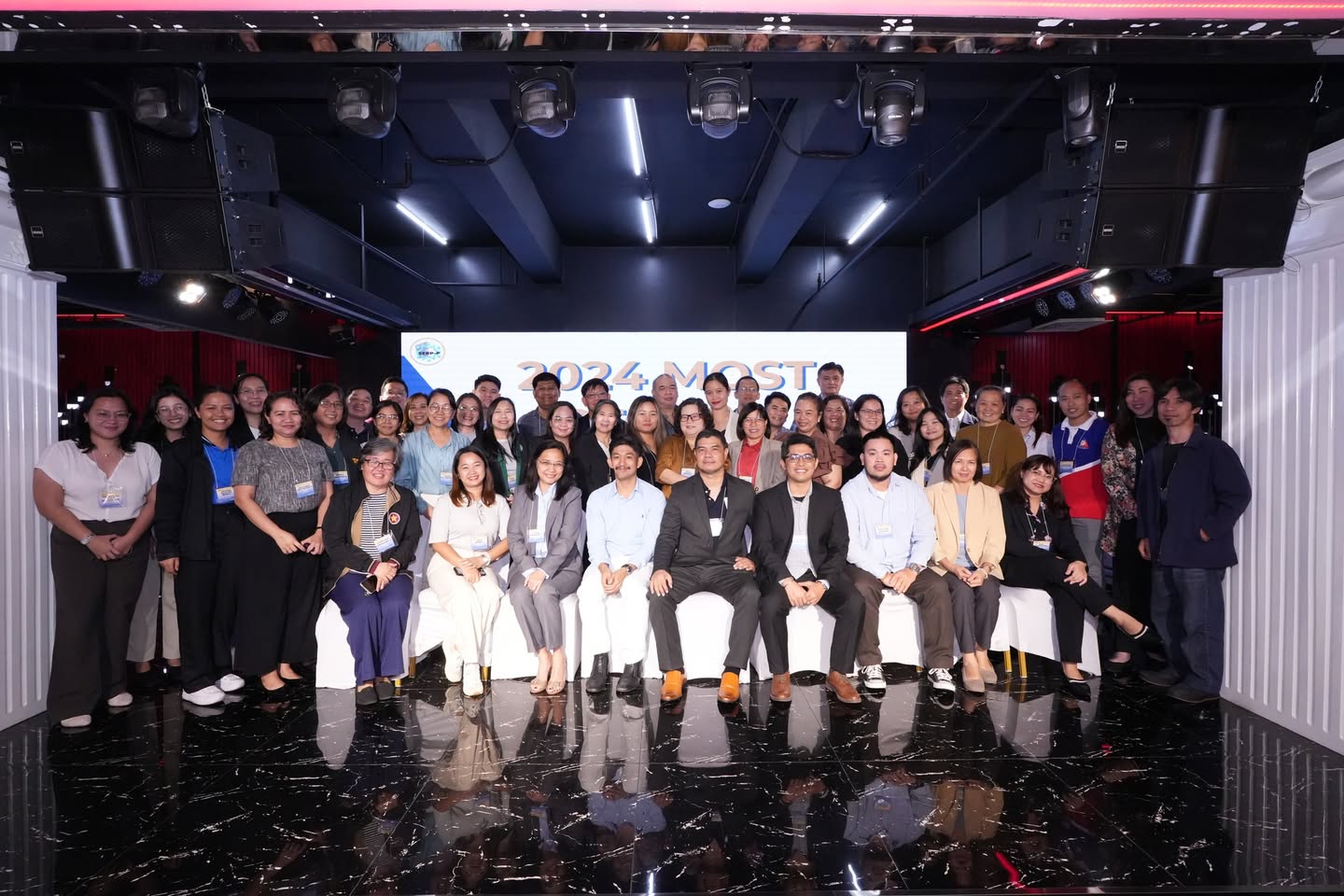THE Philippines' financial system is undergoing a transformation under the leadership of Bangko Sentral ng Pilipinas (BSP) Governor Eli Remolona Jr.
BSP has seen significant developments and achievements in various aspects of the financial and economic landscape of the Philippines. Remolona's tenure, which began in July 2023, has been marked by a focus on digitalization, financial stability and promotion of sustainability in the financial sector.
Remolona said: "I am glad that BSP has implemented various technology-driven initiatives to achieve our primary mandate of price stability, financial stability and efficient payments and settlements system."
Pioneering CBDC technology
One of the early milestones is the selection of Hyperledger Fabric as the distributed ledger technology for BSP's central bank digital currency (CBDC) pilot project, Project Agila, formerly known as Project CBDCPh. Project Agila is designed to educate the BSP and participating financial institutions on CBDC technology solutions that could improve the country's large-value payment system.
Distributed ledger technology or DLT is chosen for its ability to record, share and synchronize data and transactions across a distributed network. This will be a useful mechanism for testing Project Agila's use case scenario of enabling interinstitutional fund transfers during off-business hours or when the PhilPaSSplus system is unavailable.
Hyperledger Fabric is selected after a thorough evaluation process that included system demonstrations, walk-through procedures and a scoring system, covering the system's access, security, 24/7 availability, interoperability and programmability.
CBDCs are a form of digital money denominated in the national unit of account and are direct liabilities of the central bank. Wholesale CBDCs may be issued to commercial banks and other financial institutions to settle interbank payments, securities transactions and cross-border payments. The participants in Project Agila include BDO Unibank Inc., China Banking Corp., Land Bank of the Philippines, Rizal Commercial Banking Corp., Union Bank of the Philippines and Maya Philippines Inc.
Following technology selection, participants will test wholesale CBDC technology alongside PhilPaSSplus in a sandbox environment.
"With the goal of further enhancing the efficiency and safety of the national payment system, we will use learnings from the project as input for crafting BSP's wholesale CBDC project roadmap," Remolona said.
The BSP has also collaborated with multilateral organizations such as the International Monetary Fund (IMF) and the Bank for International Settlements (BIS) Innovation Hub to address the technical, risk management and governance aspects of the pilot CBDC project.
Banking system's role in economic recovery
BSP Governor Remolona emphasizes the crucial role of the domestic banking system in supporting the country's post-pandemic recovery during the post-State of the Nation Address (SONA) Philippine Economic Briefing (PEB). Remolona highlights the banking system's strengths and positive contribution to the nation's resurgence.
"Part of the reason behind this economic resurgence is the strength of our banking system. Unlike in previous crises, our banks formed part of the solution rather than part of the problem," the BSP chief said.
Remolona has shared that inflation is expected to settle within the government's target range of 2.0 to 4.0 percent by the fourth quarter of 2023, which he describes as ideal for the country's full-capacity growth. He lauds the accelerated digitalization in banking and payment systems that provide opportunities for efficiency, competitiveness and financial inclusion.
The post-SONA PEB had featured discussions with business leaders, government officials and key figures in the Philippines' socioeconomic landscape, focusing on President Ferdinand Marcos Jr.'s second SONA pronouncements and the economic agenda of the administration.
SM Investments Corp. Vice Chairman Teresita Sy-Coson highlights the need for stronger coordination between the national government and local government units to streamline business processes and boost growth opportunities.
"We, in the private sector, would be doing good for [economic growth] if we work with the government," said Sy-Coson.
The discussions have also featured insights from various industry leaders and international representatives on the Philippines' socioeconomic agenda.
Strengthening the financial system
Another significant development is the strengthening of efforts for a resilient and inclusive financial system through the Financial Sector Forum (FSF).
Remolona, who also chairs the FSF, emphasizes the FSF's relevance in addressing emerging trends and introducing holistic reforms in the financial sector.
He has been instrumental in enhancing the forum's focus on financial conglomerate supervision, sustainable finance, information exchange, financial technology, and consumer protection and education.
FSF has overseen the review of a third financial conglomerate to strengthen risk surveillance and ensure financial system stability. The introduction of a local sustainable finance taxonomy for climate change mitigation and adaptation further emphasizes the BSP's commitment to sustainability and green finance.
Interagency discussions continue to address upskilling supervisory personnel in response to technological advancements and expanding information sharing across the financial sector.
The FSF, composed of BSP, Securities and Exchange Commission (SEC), Insurance Commission (IC) and Philippine Deposit Insurance Corp. (PDIC), plays a vital role in coordinating and exchanging information for effective financial sector regulation while respecting each agency's mandate.
AFI issues 'Manila Manifesto' to boost financial inclusion
Remolona's commitment to financial inclusion is not limited to the domestic landscape. As evidenced by the issuance of Manila Manifesto at the 2023 Alliance for Financial Inclusion (AFI) Global Policy Forum (GPF), he advocates for global efforts to make financial products and services accessible, safe and affordable for all.
Remolona notes that the Manila Manifesto encourages AFI members to implement global regulatory standards without hindering financial inclusion, ensuring responsive and relevant regulations.
Social Welfare and Development Secretary Rex Gatchalian stresses the importance of collective action in pursuing financial inclusion. Founding Chairman of the Asia School of Business Zeti Aziz underlines financial inclusion as a collective effort.
AFI Board Chairman and Reserve Bank of Fiji Governor Ariff Ali says the alliance leverages the strength of its diverse members, which vary in economic conditions, regulatory environments and financial infrastructure.
"AFI's network allows these nations to tap into the experiences and expertise of their peers, enabling tailored solutions that reflect local realities while aligning with global standards," says Ali.
AFI Executive Director Alfred Hannig expresses optimism about AFI's contribution to both stability and sustainable development through collaboration.
One of the pressing challenges is that 1.4 billion people are excluded from the formal financial system.
Hannig says, "In the 15 years since AFI was created, with substantive support from the BSP, our members have brought over 840 million people into the financial system via enlightened national policies and strategies on financial inclusion."
The 2023 AFI Global Policy Forum, cohosted by AFI and BSP in September, has brought together 700 delegates from 70 countries and discussed vital topics, including digital technology, inclusive green finance, gender equity, supporting youth entrepreneurs and financial inclusion for forcibly displaced individuals.
BSP holds MSME exhibit
BSP has conducted an exhibit, highlighting micro, small and medium enterprises (MSMEs), as part of the AFI 2023 GPF at the Philippine International Convention Center on September 12 to 15.
MSMEs play a crucial role in the Philippine economy, accounting for 99.6 percent of business establishments, 36 percent of gross value added, and 65 percent of generated total employment. The exhibit aligns with the BSP's efforts to promote the role of MSMEs as part of the National Strategy for Financial Inclusion 2022-2028, which aims to encourage inclusive growth and financial resilience.
The exhibit featured over 50 MSMEs from various sectors, emphasizing inclusivity and digitalization as a key theme, with many exhibitors accepting payments through QR or quick response codes. The AFI GPF serves as an annual platform to explore opportunities for enhancing national financial inclusion strategies and policies, focusing on stability, sustainability and inclusivity for shared prosperity.
Economic resilience and positive outlook
Governor Remolona's leadership has seen significant developments on the economic front, with Rating and Investment Information Inc. (R&I) affirming the Philippines' credit rating at "BBB+" and elevating its outlook to "positive." This rating reflects the nation's strong macroeconomic fundamentals, fiscal improvement, sound banking system, stable politics, and comfortable external payments position, according to the report released on August 7.
"BBB+" is two notches above the minimum investment grade, and a "positive" outlook suggests potential rating upgrades in light of economic growth, macroeconomic stability and fiscal consolidation. A favorable credit rating reduces credit risk and lowers borrowing costs for the government.
BSP emphasizes the strength of the banking sector in supporting the country's economic growth, and the BSP stands ready to address inflation risks if necessary.
R&I highlighted the Philippines' robust economic performance, with a 7.6 percent gross domestic product (GDP) growth in 2022 and continued growth in 2023, making it the fastest-growing economy among R&I-rated peers such as Indonesia and Mexico. R&I is optimistic about the current account deficit, attributing it to infrastructure spending and noting the country's steady external payments position.
"In 2022, real GDP grew by 7.6 percent from the previous year, surpassing the target set by the government. The strong performance has continued through to 2023," R&I said.
The government's commitment to structural reforms and infrastructure development attracts foreign investors, ensuring high and inclusive growth.
End-September 2023 GIR level settles at $98.7 billion
The country's gross international reserves (GIR) level, based on preliminary data, has stood at $98.7 billion as of end-September 2023, marking a decrease from the end-August 2023 level of $99.6 billion. Despite this reduction, the latest GIR level represents a more than adequate external liquidity buffer equivalent to 7.3 months' worth of imports of goods and payments of services and primary income. Moreover, it stands at 5.7 times the country's short-term external debt based on original maturity and 3.6 times based on residual maturity.
The month-on-month decrease in the GIR level primarily reflects the national government's payments of its foreign currency debt obligations and the downward adjustments in the value of BSP's gold holdings due to the decrease in the price of gold in the international market.
Similarly, the net international reserves, which refers to the difference between the BSP's reserve assets and reserve liabilities (short-term foreign debt and credit and loans from the IMF, decreased by $0.8 billion to $98.7 billion as of end-September 2023 from the end-August 2023 level of $99.5 billion.
September inflation higher at 6.1 percent
Headline inflation has surged to 6.1 percent year-over-year (YoY) in September, up from 5.3 percent YoY in August, settling at the upper end of the BSP's forecast range of 5.3-6.1 percent for the month. The year-to-date average of 6.6 percent remains above the government's announced inflation target range of 3.0 percent ± 1.0 percentage point for the year.
By contrast, core inflation, which excludes selected volatile food and energy items to measure underlying price pressures, eased further to 5.9 percent in September, down from 6.1 percent in the previous month. Meanwhile, month-on-month seasonally adjusted headline inflation increased to 1.2 percent in September from 1.1 percent in August.
Inflation rose in September due largely to the increase in prices of heavily weighted food and nonalcoholic beverages. Some constraints in domestic supply, attributable to recent weather disruptions, led to higher prices of specific food items, particularly rice, meat and fruits. Concurrently, upward adjustments in domestic petroleum prices contributed to an increase in transport inflation, contributing to the upswing in nonfood inflation for the month.
The latest data indicates that inflation is likely to remain elevated in the coming months due to the continued impact of supply shocks on food prices and the rise in global oil prices. However, it is expected to decelerate back to the target range by the fourth quarter of 2023 in the absence of further supply shocks. The BSP is prepared to resume monetary policy tightening to mitigate the broadening of price pressures and curb the emergence of additional knock-on effects, given the ongoing upside risks to the inflation outlook.
Medium-term inflation path
The September 2023 inflation outturn of 6.1 percent is within the BSP's forecast range of 5.3 to 6.1 percent. Increased prices for oil and crucial agricultural commodities are the primary drivers of inflation during the month. It is expected that inflation will remain elevated in the coming months due to the ongoing impact of supply shocks on food prices and the upward trend in global oil prices. Nevertheless, it is still projected that inflation will decelerate and return to within the inflation target by the end of 2023, assuming no further supply shocks.
The risks associated with the inflation outlook are notably skewed to the upside for the period spanning 2023 to 2025. New petitions for transport fare adjustments, higher domestic prices of key food items facing persistent supply constraints, an unexpectedly significant minimum wage increase in areas outside the National Capital Region, the potential influence of El Niño weather conditions on food prices and utility rates, and higher electricity rates represent the major upside risks to the inflation outlook. Meanwhile, the primary downside risk to the outlook is the impact of a weaker-than-anticipated global economic recovery.
In light of the persistent upside risks to the inflation outlook, the BSP stands ready to resume monetary policy tightening as necessary to prevent the renewed broadening of price pressures and the emergence of additional second order effects. The BSP also continues to support the timely and effective implementation of nonmonetary government measures to mitigate the impact of persistent supply-side pressures on inflation.
Bank lending increases by 7.2 percent, YoY, in August 2023
Based on the preliminary data, outstanding loans of universal and commercial banks, net of reverse repurchase (RRP) placements with the BSP, went up by 7.2 percent YoY in August, slightly down from 7.7 percent in July. On a month-on-month seasonally-adjusted basis, outstanding universal and commercial bank loans, net of RRPs, expanded by 0.6 percent.
In August, outstanding loans to residents, net of RRPs, also grew by 7.2 percent, slightly down from 7.7 percent in July. Notably, the growth in outstanding loans for production activities slowed to 5.5 percent in August from 6.2 percent in the previous month, even amid the sustained expansion in lending to key industries such as real estate (5.7 percent); electricity, gas, steam and air-conditioning supply (9.0 percent); wholesale and retail trade, and repair of motor vehicles and motorcycles (7.1 percent); information and communication (10.7 percent); and financial and insurance activities (6.1 percent).
Meanwhile, the expansion of consumer loans to residents is broadly steady at 22.7 percent in August from 22.6 percent in July, mainly due to the growth in credit card and motor vehicle loans.
Outstanding loans to nonresidents have increased by 7.8 percent in August, marking a notable rise from 6.2 percent in the previous month.
Looking ahead, the BSP will continue to ensure that domestic liquidity and lending dynamics remain consistent with its price and financial stability mandates.
Engagements abroad
In New York, Remolona and key members of the Philippine economic team have met investors at Citi headquarters in July. Remolona has discussed the central bank's inflation outlook, inflation-targeting framework and current account outlook. The Philippine economic managers highlight the nation's strong macroeconomic fundamentals and transformative reforms aimed at boosting foreign investments. These meetings took place alongside the first PEB in Canada.
In Dubai, BSP Deputy Governor Francisco Dakila Jr., lauds the Philippine banking system's strength at the PEB, which covers investment prospects, the nation's economy and reforms to attract foreign investors.
Dakila emphasizes that Philippine banks are well-capitalized with a CAR of 16.4 percent. He highlighted YoY growth in assets, deposits and profits in June 2023, affirming the banking system's efficiency.
The Philippine banking system's assets, deposits and profits also grew YoY by 9.0 percent, 8.0 percent, and 26.1 percent, respectively, in June this year.
"Indeed, the country's banking system continues to be an efficient and responsible intermediator of funds," he adds.
BSP Assistant Governor Arifa Ala has discussed the issuance of the Philippines' first sovereign Sukuk bonds, boosting engagement with Islamic financial markets.
In August, BSP partnered with the Philippine Embassy in Riyadh to promote Islamic banking and finance in the Philippines.
Ala has led a briefing at the Philippine Embassy, emphasizing investment opportunities and the inclusive nature of Islamic banking. The BSP's strategy aligns with Shari'ah principles, fostering equity and transparency.
Ala says: "The business model of Islamic banking is beneficial to all types of banking clients regardless of religion. Hence, the goal is to provide the public in general, whether Muslims or non-Muslims, with appropriate financial choices that suit their risk appetite and financial needs and make the Philippines aligned with global developments."
The BSP's Islamic Banking and Finance (IBF) Core Team has received the Regional Presidential Lingkod Bayan Group Award for advancing Islamic finance in the Philippines. The team's efforts have established a legal framework for Islamic banking and finance and promoted financial inclusion.
Ala and the IBF Core Team plays a vital role in implementing the Islamic Banking Law and facilitating coordination within the Islamic Finance Coordination Forum.
Research Academy, AFTN sign memorandum of cooperation
The BSP Research Academy and 20 leading research institutions, together with the ASEAN+3 Macroeconomic Research Office, are signatories to the memorandum of cooperation (MoC) with the ASEAN+3 Finance Think-tank Network (AFTN).
The BSP Research Academy and the Philippine Institute for Development Studies are the two-member research organizations of the AFTN from the Philippines.
Under the AFTN MoC, the network members pledge to strengthen cooperation and collaboration in areas of common interest through joint research, dialogues, knowledge exchange and mobilization of regional research resources.
Over the past few years, the region has experienced systemic and exogenous shocks of varying forms. These include geopolitical concerns, intensifying effects of climate change and a pandemic.
Remolona says: "[Amid] these challenges, we have thrived because we have worked together to deliver on our mandates. The establishment of the ASEAN+3 Finance Think-tank Network draws from the same spirit. This Network will serve as a venue for information exchange and regional research mobilization. I personally look forward to BSP's active participation in the Network."
Bolstering financial system resilience
The Financial Stability Coordination Council (FSCC) has given the green light to an array of measures aimed at fortifying the nation's financial system, making it more resilient and capable of withstanding risks. These initiatives span from improving communication and the capital and contingent markets to enhancing risk assessment tools and data to preemptively manage potential contagion risks.
FSCC, under the leadership Remolona, sees positive indicators in the local financial market. The economy is expanding, inflation rates are declining, employment is on the rise and corporations are not showing signs of widespread pressures.
However, the FSCC emphasizes the need for continuous monitoring. Systemic risk surveillance is crucial as global and regional market conditions intersect with the domestic landscape. The council said while global growth prospects have improved, pressures from advanced economies and within Asia persist.
The Systemic Risk Review from the FSCC anticipates that the growth prospects of the Philippines' major trading partners may diverge. The impact of shifting market rates is still unfolding.
Remolona underlines the importance of preparing for potential scenarios rather than focusing solely on the most likely outcomes. The FSCC holds quarterly meetings, with additional sessions convened as market conditions necessitate.
The council comprises financial market authorities, including the BSP, the Department of Finance (DoF), IC, PDIC and SEC. Their mission — under Executive Order No. 144 — is to mitigate systemic risks that can jeopardize the overall financial system's stability.
Additionally, Remolona is committed to advancing sustainability principles within the financial sector. Remolona stresses the importance of a sustainable agenda that prioritizes the well-being of vulnerable sectors and the environment at the PEB in Laoag City.
The BSP is actively implementing the Sustainable Central Banking (SCB) Strategic Program, which promotes sustainability principles in its policies and the financial sector. The program also encourages funding for green projects, including transitional activities for decarbonization and equips banks to manage environmental and social risks. It forms a key component of the BSP's 11-point strategy under the SCB Program, aligning sustainability with the nation's economic development goals.
DoF Secretary and Monetary Board Member Benjamin Diokno highlights that the renewable energy sector's full foreign ownership, green energy projects and the Ilocos region's potential for sustainability initiatives will contribute to creating high-quality green jobs for the Filipino population.
The Ilocos region boasts significant wind energy capacity, including the Burgos Wind Farm, which has a capacity of 150 megawatts, the largest in the country. The BSP is actively working to balance sustainability with economic growth and employment opportunities, thereby making sustainability a key focus for the nation's financial future.
In August, Mandaue City launched the Paleng-QR Ph Plus program, promoting digital payments in local markets and transport. This initiative offers quick, secure cashless transactions and is supported by BSP and the Department of the Interior and Local Government (DILG).
The city aims for efficient local services while DILG backs this cashless transition. The program includes account opening and currency exchange services. It aligns with BSP's financial inclusion and digital payment roadmap. Mandaue City's adoption marks a significant step toward a digital financial landscape in the Philippines.
Mandaue City Mayor Jonas Cortes says, "Paleng-QR Ph Plus shows our progress and our aspirations for more efficient and safer services for all Mandauehanon. Through this initiative, we can assure you that our public market will become the center of our local economy."
The program aligns with the BSP's financial inclusion and digital payment roadmap and marks a significant step toward a digital financial landscape in the Philippines.
In celebration of its 30th anniversary, BSP donated P5 million to six health care institutions, including the Philippine Red Cross, Lung Center of the Philippines, Philippine Children's Medical Center, Philippine General Hospital, Philippine Heart Center and the National Kidney and Transplant Institute on July 31, 2023. Remolona Jr. led the donation ceremony at the BSP head office, emphasizing the BSP's dedication to supporting health care for underserved Filipinos.
New MB members take oath
BSP recently welcomed two distinguished members to its highest policymaking body, the Monetary Board (MB).
Former National Treasurer Rosalia De Leon was inducted as a new MB member on September 20, serving a six-year term. BSP Governor Remolona Jr. officiated the ceremony.
De Leon brings extensive financial and governmental experience, having served in various high-ranking roles, including positions within the DoF. Her academic credentials include a Master of Arts in Development Economics from Williams College in Massachusetts and a Bachelor of Arts in Economics from the University of the Philippines.
This strengthens the MB, chaired by Governor Remolona, and also featuring Finance Secretary Diokno, Victor Bruce Tolentino, Anita Linda Aquino and Romeo Bernardo, who commenced his term earlier.
Bernardo has a distinguished career that spans multilateral institutions, board memberships in various corporations and a role in founding financial advisory firms. Bernardo was undersecretary of the DoF from 1990 to 1996 and worked at multilateral institutions, including the World Bank, IMF, and Asian Development Bank. He holds a Master of Arts in Development Economics from Williams College and a Bachelor of Science in Business Economics from the University of the Philippines.
The BSP Governor
Remolona is the seventh Governor of the BSP and chairman of the MB. Outgoing BSP Governor Felipe Medalla handed over the reins of the central bank to Remolona in a ceremony held on July 3, 2023 at the BSP head office.
Remolona has extensive policy and operational experience in monetary policy and international finance, having worked at the BIS for 19 years and at the Federal Reserve Bank of New York for 14 years. From 2019 to 2022, Remolona has served as professor of finance and director of central banking at the Asia School of Business in Kuala Lumpur. He also taught at Williams College, Columbia University, New York University and the University of the Philippines School of Economics.
Before his appointment to the Monetary Board in 2022, Remolona served as an independent director of a Universal Bank and chairman of its risk management committee. He earned his PhD in Economics with distinction from Stanford University and obtained his bachelor's degree in Economics with honors from the Ateneo de Manila University.
Remolona underscores policy continuity, citing the sustained easing of inflation, a strong banking system and an increasingly digitalized and efficient payments and settlements system in the country.

